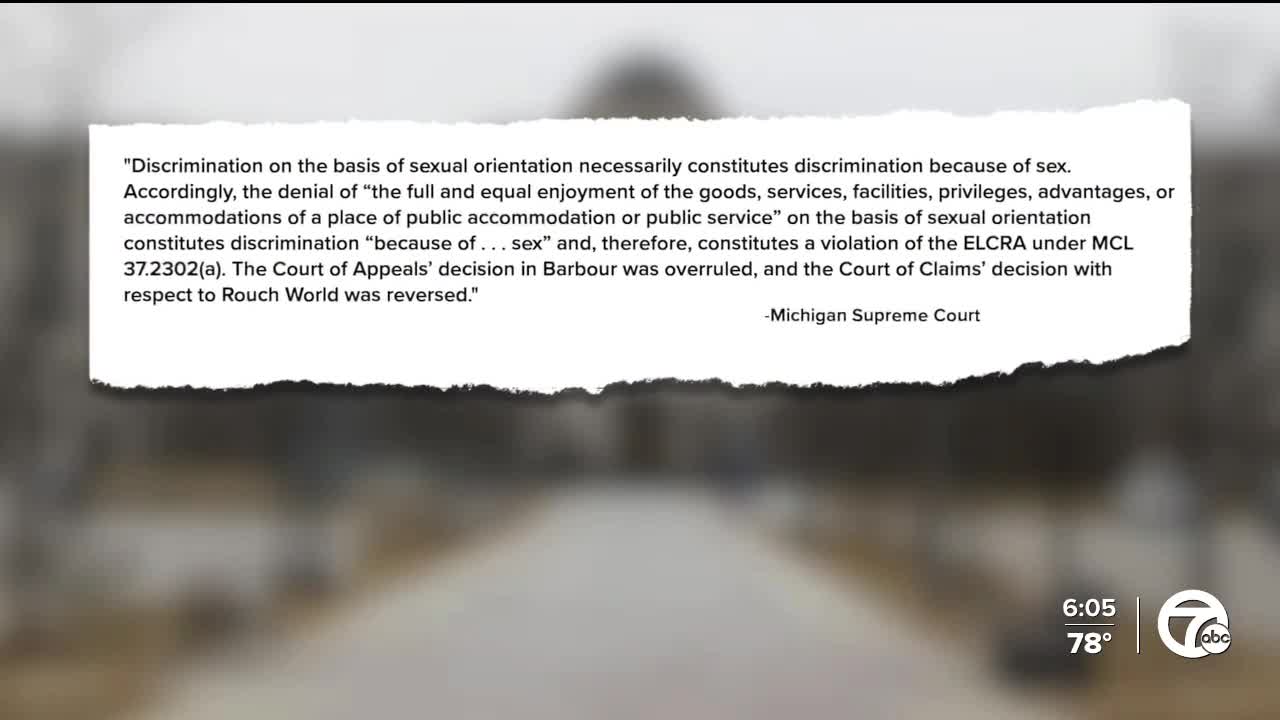(WXYZ) — The Michigan Supreme Court ruled that LGBTQ+ people are protected from discrimination under the Elliott-Larsen Civil Rights Act. The Supreme Court’s decision Thursday made clear the word “sex” in Michigan’s civil rights law applies to sexual orientation, not just gender.
The 5-2 ruling included one Republican justice. It means members of the LGBTQ+ community can no longer be denied housing, fired from a job, or denied service by a business in Michigan simply for a person’s sexual orientation.
Jeynce Poindexter is a Case Manager at the Ruth Ellis Center and an LGBTQ+ community activist.
“I couldn’t be more thrilled. I’ve been involved in trying to amend the Elliott-Larsen Civil Rights Act to cover sexual orientation and gender identity for years,” Poindexter explained.
She explained what it felt like Friday waking up protected from discrimination under Michigan Law.
“I feel joy. I feel happiness. And I feel glad to be a Michigander,” said Poindexter.
The Supreme Court’s decision Thursday made clear the word “sex” in Michigan’s civil rights law applies to sexual orientation, not just gender.
“Here in the state of Michigan, we are validated, and we are seen and protected like everybody else, under the law,” said Poindexter.
Attorney General Dana Nessel, who argued the case, weighed in on the ruling
“It’s good for the people of our state, it’s good for businesses in our state and it’s great for the economy of our state,” said Nessel
She said the chamber of commerce and many businesses are praising the decision.
“It means that people can feel confident in being who they are and being so publicly and not have to worry about having their job threatened or their housing situation threatened,” Nessel said.
For her, the issue is also personal.
“Up until yesterday I could still walk into a diner and be told they won’t serve me or my family,” said Nessel.
She said the queer community is just like everyone else.
“We’re law-abiding members of the community like anybody else. We just want to have all the same opportunities. And now we do,” Nessel said.
The issue is also personal to Marissa Jayne Wolfe, one of the people who filed a civil rights complaint that ultimately led to the Supreme Court’s decision. She was denied electrolysis service to have facial hair removed.
“I was disgusted. I was humiliated. I was scared for other people who would seek the same service,” explained Wolfe, recalling the prior discrimination.
Wolfe said the win has only just started to sink in.
“I feel validated. I’m sure other people feel validated. But I also realize that the fight’s not over,” admitted Wolfe.
“I want people to speak up when they do experience the discrimination and the hatred because nobody should be alone in this,” said Wolfe.



